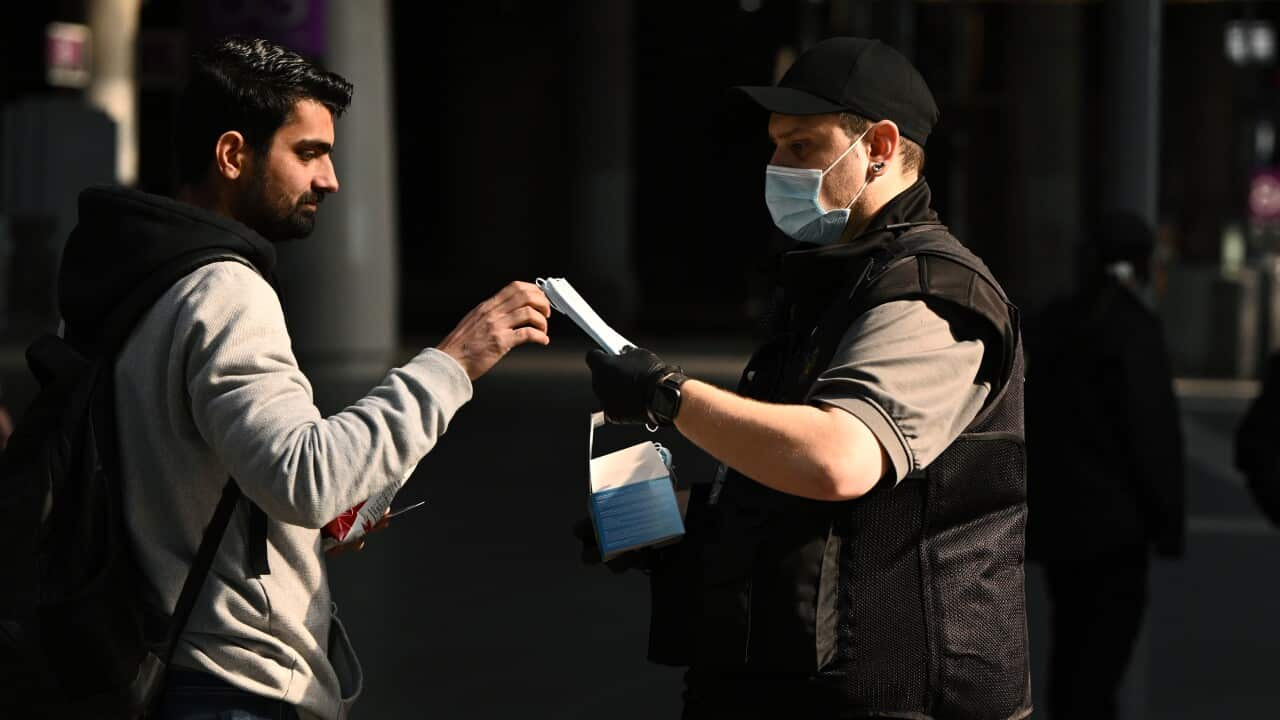Key Points
- Masks are no longer compulsory on international flights to Australia as COVID-19 rules relax around the country.
- The mandate ended at 12.01 am on Friday, but travellers are still advised to consider wearing them.
Masks are no longer compulsory on international flights to Australia as COVID-19 rules relax around the country.
The mandate ended at 12.01 am on Friday, but travellers are still advised to consider wearing them for their own safety.
Federal Health Minister Mark Butler said the change was endorsed by the chief medical officer.
"I encourage everyone travelling overseas to be mindful of the continuing risk of COVID-19 and to take personal precautions to stop the spread and stay safe," he said.
Face coverings are also no longer required on domestic flights under previously flagged changes also in effect from Friday.
Rules regarding the Pandemic Leave Disaster Payment have changed to reflect the minimum isolation period for anyone applying.
From Saturday, Australian states and territories will no longer provide daily COVID-19 figures.
Authorities will instead move to weekly updates because they see that the "daily reporting of cases is not as important as it once was".
There were 9,176 new COVID-19 cases and 74 deaths reported around Australia on Thursday, with 2,388 people in hospital with the virus including 64 in ICU and 17 on a ventilator.
Health departments across the country have published daily numbers on cases and deaths, vaccination rates and hospitalisations throughout the pandemic.
But, in a statement, ACT Health Minister Rachel Stephen-Smith said: "The winter wave of COVID-19 has passed, and we have reached a stage in the pandemic where daily reporting is not as important as it was."
Mr Butler said health officials is backing the changes.
"The move is supported by chief health officers and will ensure high quality, accurate information is provided that sheds more light on COVID dynamics," he said in a statement.
"This approach will bring national reporting in line with all the state and territories and support the analysis of COVID trends nationally and globally.
"The national report will be expanded to include trends-based analysis and oral antiviral treatment uptake."
Last week, it was decided to reduce the mandatory isolation period for positive COVID-19 cases has been reduced from seven to five days.
The decision follows the latest National Cabinet meeting between Prime Minister Anthony Albanese and state and territory leaders.

Prime Minister Anthony Albanese. Source: AAP / Dan Himbrechts
People will be able to leave isolation after five days, provided they have no symptoms.
Seven days of isolation will still apply for workers in high-risk settings such as aged and disability care.
"On the weight of evidence, this was a proportionate response, at this point in the pandemic," Mr Albanese told reporters in Sydney.
"What we want to do is to make sure that government responds to the changed circumstances, that COVID likely is going to be around for a considerable period of time, and we need to respond appropriately to it."










